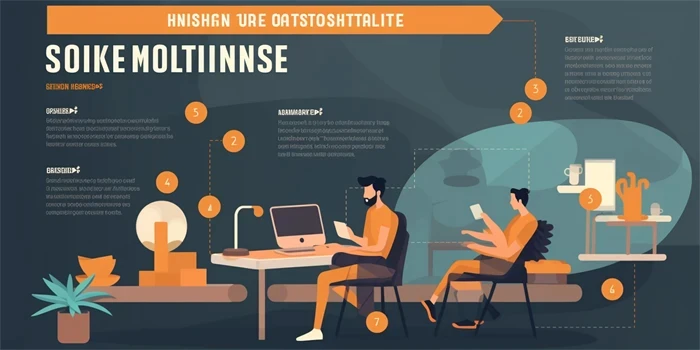The education system has been evolving over the years, adopting new technologies to enhance the learning experience of students. With the rapid advancements in artificial intelligence (AI) and adaptive learning technologies, the future of education looks promising. These technologies have the potential to revolutionize the way we learn and teach, making education more personalized, efficient, and accessible. In this article, we will explore the various aspects of AI and adaptive learning technologies and their impact on the future of education.

1. Personalized Learning
AI and adaptive learning technologies can analyze a student’s strengths, weaknesses, and learning style to provide personalized learning experiences. By assessing individual needs, these technologies can tailor the curriculum, pace, and delivery of educational content to maximize learning outcomes.
For example, platforms like Khan Academy and Coursera utilize AI algorithms to recommend courses and content based on a student’s interests and performance. This adaptive approach ensures that students receive the resources they need to succeed.
2. Intelligent Tutoring Systems
Intelligent tutoring systems powered by AI can act as virtual tutors, providing personalized guidance and feedback to students. These systems can understand student responses, identify misconceptions, and adapt their teaching strategies accordingly.
One notable example is Carnegie Learning’s Cognitive Tutor, which uses AI algorithms to guide students through math problems. It continuously monitors their progress, identifies areas of difficulty, and provides targeted instruction to help them improve.
3. Enhanced Collaboration
AI-supported collaboration tools can facilitate seamless communication and collaboration among students and teachers. These tools can analyze and summarize discussions, provide real-time feedback, and even help in translating languages, breaking down barriers to effective collaboration.
For instance, Google Docs incorporates AI-powered collaboration features that allow multiple users to work on a document simultaneously. It also offers suggested edits and comments, promoting a collaborative and interactive learning environment.
4. Intelligent Assessments
AIs can revolutionize assessment methods by providing more accurate and timely feedback. They can automatically grade assignments, quizzes, and exams, saving teachers time and enabling students to receive immediate feedback on their performance.
Platforms like Gradescope utilize AI to analyze handwritten or typed answers, recognizing patterns and grading with high accuracy. This not only streamlines the assessment process but also provides valuable insights for personalized instruction.
5. Adaptive Virtual Reality (VR) Experiences
Combining AI with virtual reality (VR) can create immersive learning experiences that adapt to the needs and abilities of students. AI algorithms can adjust the difficulty level, pace, and content of VR simulations to ensure optimal learning outcomes.
For example, Labster offers virtual laboratory simulations that incorporate AI to provide personalized guidance during experiments. It can analyze students’ actions and provide real-time feedback, enhancing their understanding and practical skills.
6. Supporting Special Needs Education
AI and adaptive learning technologies can play a crucial role in supporting students with special needs. These technologies can provide customized resources, accommodations, and interventions to help students overcome their unique challenges.
One remarkable tool is the OpenAI Text-to-Speech system, which converts text into high-quality, natural-sounding speech. This technology can aid individuals with reading difficulties or visual impairments, making educational content more accessible and inclusive.
7. Continuous Progress Tracking
AI algorithms can track and analyze students’ learning progress over time, generating comprehensive reports and insights that can be shared with teachers and parents. This enables timely interventions and informed decision-making to support each student’s development.
Platforms like PowerSchool Learning use AI-enhanced analytics to provide detailed reports on individual students’ academic performance, attendance, and engagement. This data-driven approach helps identify areas of improvement and ensures consistent monitoring of student progress.
8. Ethical Considerations
As AI and adaptive learning technologies become more prominent in education, it is crucial to address ethical concerns. Issues such as data privacy, algorithm bias, and the digital divide need to be carefully addressed to ensure equitable and responsible use of these technologies.
Education systems should prioritize the development of guidelines and policies that promote transparency, fairness, and consent in the adoption and implementation of AI-powered educational tools.
Frequently Asked Questions (FAQs)
1. Will AI replace teachers in the future?
No, AI will not replace teachers but rather augment their roles. AI technologies can assist teachers by automating administrative tasks, providing personalized recommendations, and facilitating data-driven decision-making. Teachers will continue to play a vital role in guiding and nurturing students’ educational journeys.
2. Can adaptive learning technologies work for all subjects and age groups?
Adaptive learning technologies can be utilized in various subjects and across different age groups. However, the level of adaptivity and the specific implementation may vary depending on the subject matter and the age appropriateness of the content and interfaces.
3. How do AI-powered assessment tools ensure fairness and accuracy?
AI-powered assessment tools undergo rigorous development and testing to ensure fair and accurate results. They are trained on large datasets and programmed to recognize various patterns and algorithms to avoid bias. Additionally, human input and oversight are crucial in refining and validating the performance of these tools.
References
1. Khan Academy – Online learning platform: www.khanacademy.org
2. Carnegie Learning – Intelligent math tutoring: www.carnegielearning.com
3. Labster – Virtual laboratory simulations: www.labster.com


